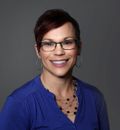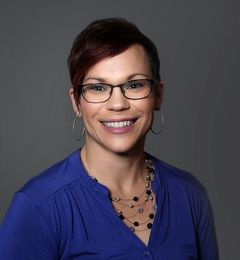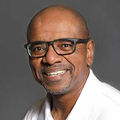The world is full of information, not all of it factual. For example, as a kid, my grandmother used to tell me not to go outside with wet hair for fear of catching a cold. Today, we know that colds are caused by viruses, yet some people still associate them with cold air.
Experts are people who help us sort through the information and home in on the facts. For health and wellness professionals, being an expert comes with a great deal of responsibility. When I see a doctor, I want them to be informed on the most recent science-backed treatment protocols. Further, I don’t want them commenting on conditions that are outside their specialization. Personal trainers, group fitness instructors and health coaches have the same responsibility for the well-being of their clients and participants.
I started my career in fitness as a personal trainer. I quickly learned that my clients were exceptionally bright and were looking to me as a coach, an expert, in helping them on their path to developing healthier lifestyle habits. I was asked questions, presented with articles, and quizzed on every piece of information they knew, or thought they knew, about their bodies and their health. I quickly learned some important lessons.
“I don’t know, but I’ll find out.”
I’m a person who likes to know things and to have answers to questions. It’s one of the traits that drives my life-long learning. As a personal trainer, I realized that feigning intelligence on a subject was not only unsavory, but also potentially hurtful to my client’s well-being. So, I adopted the phrase, “I don’t know, but I’ll find out.”
It’s a powerful phrase. It demonstrates your humility and willingness to learn, while retaining your role as the expert. (Yes, ego sometimes plays a role, and we must admit it lest it get the best of us.) That response was always met with a respectful nod, because—and this is critical—I would always follow up and provide a factual, well-vetted response.
“That is a good question for another practitioner.”
The second rule I adopted was referring out. Maybe it is my origins in sports medicine, but ingrained deeply in me is the understanding that I have a clear scope of practice and stepping outside of it is both irresponsible and could lead to legal action.
I had several chiropractors, massage therapists, physical therapists, acupuncturists and physicians to whom I referred my clients. I met practitioners along the way, calling people who my clients were already seeing and connecting with them over coffee or even by making an appointment of my own. Over time, my business grew, as did theirs, as a result of cross-referrals. Now, if you’re worried that referring your client out to a different practitioner means they have less money to pay for your services... don’t. I’ve heard this more than once and I can honestly say that the money you make from referrals will far exceed any losses.
By referring, I was adding another professional’s expertise to my own, which ensured that my clients were getting the best information possible, and my clients always appreciated the referral to someone who could help them on their journey. Having a network of professionals to refer your clients to adds value to their experience.
ACE has provided clear scope of practice guidelines and a code of ethics to help practitioners feel confident that they understand their role. Regardless of what you may see other practitioners doing, staying grounded in those facts will help you respect the safety of your clients.
Discerning fact from fiction
I always wanted my clients to understand their bodies better and grow their knowledge so that they improved their own wellness expertise. To do so, I helped them sort through a myriad of news stories and fads. To simplify, I tended to target two things.
1. The challenge and importance of emerging science: Emerging science is newer science, when there are a few studies, maybe even on humans, the results of which haven’t yet been repeated with enough frequency to accept them fully into practice. These studies are fascinating, they are stimulating, they make great news and they excite people like me (and probably you) as we seek to understand the world. They are essential to scientific growth. And yet, the challenge is that we simply don’t know enough about the results to say that they are valid results or that they apply to everyone.
I always made sure my clients understood the type of science they were seeing in the news. Today, with TikTok and Instagram influencers so easily accessible, the job has gotten harder—and more important. Gurus love to embrace emerging science as fact and then claim that they’ve been following those particular practices for 10 years. What they often fail to mention is the myriad of other fads they tried and dismissed along the way. Choosing to test emerging science on one’s own body is a personal choice. An expert recommending that someone else choose to test on their body is a risk. If a client is asking about a trend, consider the following:
· Where does this fall in your scope of practice?
· Is there reputable information you can share without giving advice?
· What might be the best referral so they can get more information?
The reply to something outside your scope of practice or expertise might look like this:
“I’ve read some interesting information about that, too. Based on the studies, it doesn’t appear that the results have been replicated, so there is still a question of whether these results will hold true. I can send you a few articles I’ve read. I’m not comfortable commenting on how that might impact you, but I can refer you to someone who I think might be helpful if you are interested.”
2. Staying focused on what works and be realistic: Most people don’t need to employ the newest, deepest, most ground-breaking science to their lifestyle. Broad lifestyle changes have profound effects on most people because at least one aspect of their lifestyle choices (e.g., sleep, hydration, stress control, exercise, nutrition, smoking, and alcohol consumption) can use some fine tuning.
The concept of “biohacking” is very popular, and the use of the term has been applied to topics ranging from intermittent fasting to young blood transfusion. In my estimation, the concept has its origins in biological curiosity and impatience. Especially in the United States, we want to find a shortcut for everything. Here’s my shortcut:
· Coach your clients to focus on realistic lifestyle changes one at a time and to stay present in their day-to-day execution of that change, observe their own barriers and seek to remove them. Then… Celebrate. Each. Success. It’s a marathon folks, not a sprint.
Learning fuels a career journey
Holding these tenets constant in my practice as a personal trainer served me as well. The curiosity of my clients (and colleagues) fueled my own. Seeking answers to their questions drove me to broaden my knowledge and eventually my own expertise. Curiosity and the drive to “figure it out” have fueled my career journey.




 by
by 





 by
by